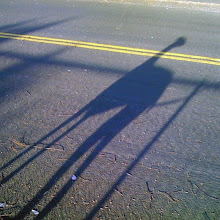Dreaming of Days of Dooky-liciousness
So I can't help but feel touched, a year to the day the levees did in New Orleans when Katrina couldn't quite, to read Kim Severson's "In New Orleans, Knives, Forks and Hammers" in the New York Times today. Especially the focus on one of New Orleans' broken souls, the wonderful restaurant Dooky Chase. Amy and I had dinner there back in June 2001, on a delicious weeklong trip where we ate our way through the Crescent City. And as good as the food was--and it was, rich with flavors you know partially come from the very air of a long-cooked-in kitchen, lively with the depths of a court bouillion (that's coo-bee-yon if you don't speak Creole, but you will after a bowl of it)--it's a moment after dinner I remember most. Dooky Chase isn't in the best of neighborhoods, across the street from one of New Orleans' too numerous housing projects that are often merely late 20th century warped versions for the much fancier above-ground cemeteries haunted by tourists--it's a place for those assumed to be dead to most of us. We were cabbing it about the city, so were on the corner, waiting for our ride. Everything seemed fine, but Dooky himself stuck his head out the door and asked if we were ok. We're talking a place that cares for its customers.
So it breaks my heart to read:
Even if Mrs. Chase gets the doors open, there is no telling where she will find waiters, cooks or customers. The housing project across the street is sealed with steel plates, and most of the houses in her neighborhood are empty, still bearing spray paint from the search for bodies.
“I know people say, ‘My God, a year later and you’re not any further than this?’ ” Mrs. Chase said. “They just don’t understand. We’re all taking a whipping down here.”
But then there's always another meal, and when there's a meal, there's hope. For near the end of the article we get to read:Fund-raisers have been good to the Chases, too, bringing in about $100,000 so far. Kitchen equipment and some labor have been donated. But the work has been slow, a reflection of the realities of rebuilding in New Orleans and their small budget, and because the couple, being somewhat old-fashioned, prefer not to take out loans.
And as Mrs. Chase points out regularly, she and her husband disagree on the direction the project should take — whether, for example, to open the takeout window before the main dining room. Not only that, he just doesn’t like to spend money.
“He wouldn’t give a crippled crab a crutch to get to a gumbo party,” Mrs. Chase said.
“I don’t have a message until I have something positive to say,” Mr. Chase countered.
Here's hoping Dooky has plenty to say soon.


0 Comments:
Post a Comment
<< Home